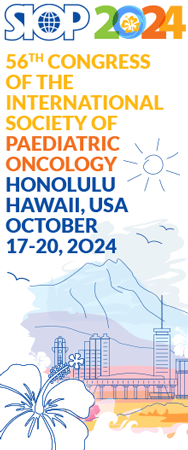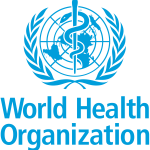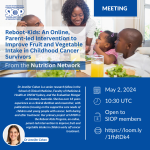Dr Ian Magrath (1944–2023)
The International Agency for Research on Cancer (IARC) as well as the International Society of Paediatric Oncology (SIOP) are saddened by the passing of Dr Ian Magrath on 14 March 2023 in Brussels, Belgium.
Dr Magrath was a one of the early leaders in pediatric oncology, having participated in the early Burkitt Lymphoma trials in Africa. He subsequently moved on to translational research, when it wasn’t a topic, and ran his EBV lab at the NIH.
He later established the International Network for Cancer Treatment and Research (INCTR), which worked in multiple developing countries to improve cancer care for children there. Ms Melissa Adde (his partner) partnered with him extensively in ensuring INCTR’s success in implementing translational research and clinical trials in developing countries.
Dr Magrath, a paediatric oncologist and cancer researcher, was the founder and long-time president of the International Network for Cancer Treatment and Research (INCTR).
Dr Magrath was born on the Isle of Man in 1944 and was educated in London, where he attended Charing Cross Medical School and graduated in 1967. He studied paediatric medicine and oncology at the University of London. Later, he moved to the USA and joined the United States National Cancer Institute (NCI) as an attending physician, senior investigator, and then Head of Pediatric Oncology and Head of the Lymphoma Biology Section. At the NCI, he taught clinical associates in paediatric oncology and conducted basic research in malignant lymphomas and Epstein–Barr virus, as well as in more clinically oriented aspects of treatment. Dr Magrath published more than 170 scientific papers. His research focused on biological and clinical aspects of lymphoma and especially Burkitt lymphoma (including contributions to two IARC Scientific Publications on this topic). His long-lasting interest in Burkitt lymphoma was developed in the early 1970s, when he worked at the Uganda Cancer Institute, and he retained a lifelong devotion to the management of paediatric cancer in low- and middle-income countries.
While he remained a staff member of the NCI, Dr Magrath was instrumental in establishing INCTR, a not-for-profit, nongovernmental organization founded in 1998 by the International Union Against Cancer (now known as the Union for International Cancer Control; UICC) and the Institut Pasteur in Brussels, and he became its first president. INCTR was supported by the NCI until 2012 and was located at the Institut Pasteur in Brussels. INCTR had branches in many countries, and the programme of research collaboration, education, and training aimed to help low- and middle-income countries to develop an increased understanding of the causes of and predisposition to regionally important cancers, and to increase survival rates and the quality of life in patients with cancer. In this context, INCTR supported cancer registration in Africa, notably in the period 2004–2008, when funding from other sources was limited.
Dr Magrath was an idealist. A gentle man and a gentleman, he was determined to make a difference in his chosen calling: building capacity for cancer treatment in countries where resources were either poorly provided or non-existent. He was in many ways a visionary. In the first decade of this century – when there was little or no interest in the concept of “global cancer” – through INCTR he built up a worldwide network of clinical and scientific experts. Compassionate and generous to his colleagues, he placed a high value on collaboration and service to others.
After developing Parkinson’s disease in the last years of his life, Dr Magrath was cared for by his partner Ms Melissa Adde, who eventually succeeded him as the president of INCTR. Tragically, Ms Adde passed away shortly after Dr Magrath. Their work, and the example of lifetime commitment that they provided, touched many people’s lives, and they will be sorely missed by those who had the privilege to know them.
IARC and SIOP conveys its deepest and heartfelt condolences to Dr Magrath’s family, friends, and colleagues.






